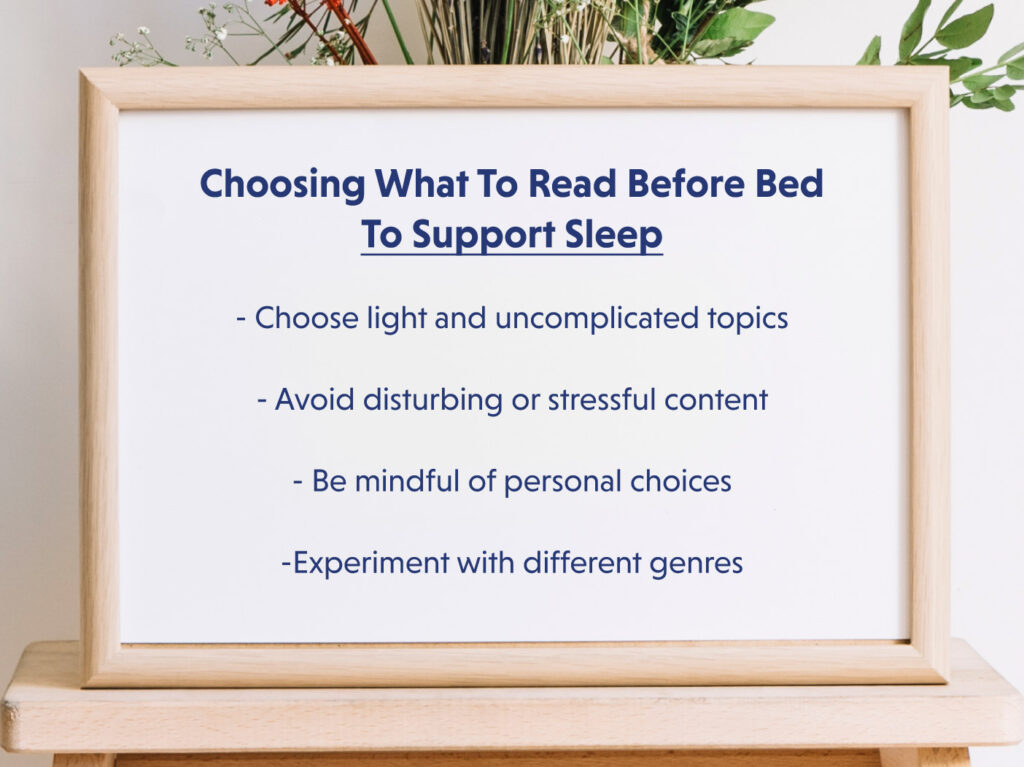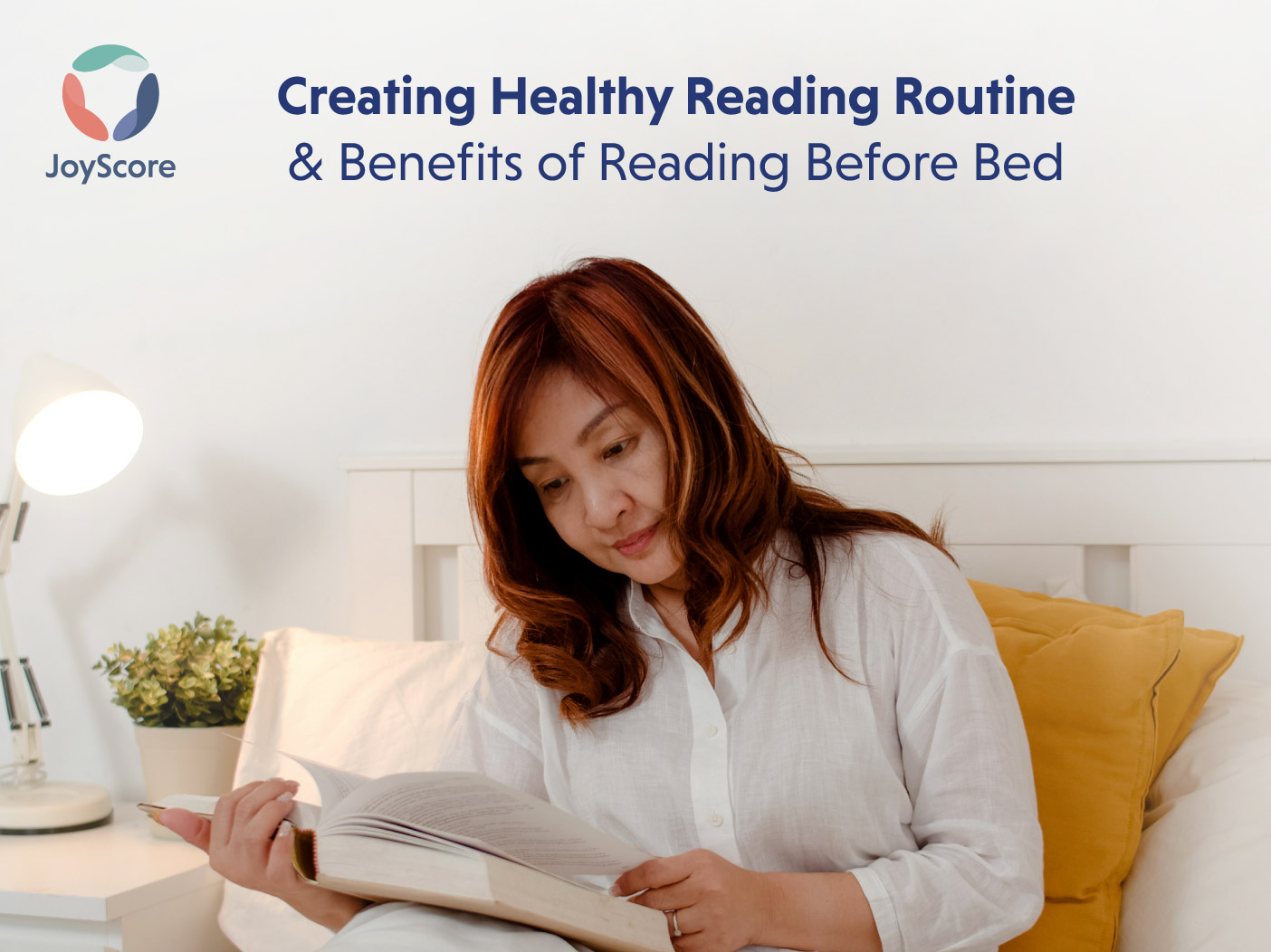Just as a healthy diet and exercise is important for humans, so is good sleep. Sleep gives us a break from the responsibilities and stress of day-to-day life. During sleep, the parts of the brain undergo repair and regenerate so that they can undergo normal functioning. So, one can understand that without proper rest, certain neurons of the brain can malfunction, leading to inappropriate behavior and performance. For this reason, it is urgent that humans learn effective ways to improve their quality of sleep every night.
Reading in bed before sleeping is one of the most effective ways to support healthy sleep. Picking up a good book imitates the calming effect of meditation or any other relaxation activity. It is a simple, enjoyable habit if done correctly and mindfully. Here are some possible benefits linked with reading before bedtime.
- RELIEVES TENSION
Hitting the bed burdened with all the concerns and worries of life will not permit the person to fall asleep easily. He or she can find comfort in being distracted from their story with the help of a new story. This is because a book demands one’s concentration. The pleasure of reading will offer one satisfaction, easing a smooth transition into sleep.
Other than psychological benefits, reading is also good for physiological well-being. Reading reduces stress levels, further lowering the heart rate and muscle tension.
- ENHANCES SLEEP QUALITY
A regular reading routine can establish a body clock that associates winding down and sleeping with reading a book. So, along with falling asleep sooner, the person also experiences a deeper, more restorative sleep. A good book puts them in the right headspace to enter a dreamland, adding an extra layer of enjoyment to their sleep experience.

TIPS FOR A HEALTHY READING ROUTINE
- AVOID COMPLICATED THEMES
A complex or intense narration like horror, suspense or too much emotion can stimulate the mind. It will arouse anxiety within the brain neurons and tension in the muscles. One needs to relax the mind instead. So, consider reading something soothing or calming, such as a book about nature writing, poetry, light-hearted memoirs or books related to mindfulness, when getting ready for bedtime. Here are some examples of good sleep books:
- The Sleep Revolution- by Arianna Huffington
- Yoga for Better Sleep- by Mark Stephens
- Bedtime bonnet- by Nancy Redd
- Sleep Smarter- by Shawn Stevenson
- Radiant Rest- by Tracee Stanley

- SET A READING TIME
Picking up a book every night at the same hour will set a body’s internal clock. This means that a particular time will be psychologically linked to sleeping which will make it easier to calm the mind and transit to sleep.
Other than setting a specific time, the time you spend reading is also important. A good book can grab the interest and focus of its reader very easily. So, instead of falling asleep on time, one may stay up too late without noticing. To avoid this, use a timer or alarm to track your reading time.
- MAKE YOUR READING SPOT RELAXING
There are a number of ways to make a reading environment cozy and relaxing, especially at night time.
- Setting up a corner in the living room next to the bookshelf.
- Place a comfortable chair or a pile of pillows on the bed to sit.
- Sit near a good source of light to avoid straining the eyes. It may be a lamp or an overhead light.
- Try playing some soft music in the background to enhance focus and relaxation.
- Don’t forget reading glasses if one has been advised.
- Put electronic devices like phones on silent.
- CHOOSE PHYSICAL BOOK OVER E-READER
Some people may try to save space by downloading an e-reader instead of building up a book collection at home. This may seem handy, but it limits the extra benefits of physical reading. Despite any effort to limit the blue light emission from the screen, some amount will always reach the eyes. This light negatively affects the melatonin level in the brain, which induces sleep. It is not good for the natural sleep cycle which will be disrupted with time.
- TRY AUDIOBOOKS OR PODCASTS
For those who cannot read at all due to illiteracy or any other issue, audiobooks or podcasts are an option. It offers a great alternative to reading books through apps like Speechify. The effect is the same too. Listening to audiobooks can help the brain waves slow down and enter into the Rapid eye movement cycle effortlessly. Routine practice improves sleep quality and promotes sleep learning too.
- MAINTAIN A READING JOURNAL
A reading journal can be an additional benefit to the sleep experience. Recalling and summarizing what you read is a brain exercise that breaks down overthinking and anxiety. Thus, the brain feels tired and easily transitions into sleep.
- DO NOT FORCE SLEEP
Sleeping is a natural process and should not be reinforced. If one doesn’t feel the urge to hit the bed after reading is over, wait for a few more minutes. Set the book aside, switch off the light, and sit quietly while taking a few deep breaths. This signals the brain that it is time to sleep, and will help you fall asleep gradually.
CONCLUSION
Remember, 20-30 minutes of reading is the ideal time for reading before bedtime, but rather you read more or less, your body is relaxed when it reads before bed and responds well to a reading routine. Focus on choosing the right reading material and a relaxing environment to improve the sleep experience.
Download the JOYSCORE app for more educational content to manage your life in a healthy way.
Download on the Appstore
Get it on Google Play



